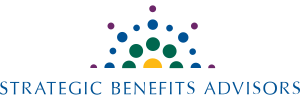Employers are increasingly exploring artificial intelligence as a means of solving their HR challenges. But a host of challenges — from a general lack of consensus about what “AI” even means to systems integrations issues — have slowed industry adoption. Now is a good time for employers to educate themselves on what AI means and how it can benefit the HR function.
Pandemic sharpens focus on employee financial wellness
COVID-19 has made financial wellness a hot topic in 2020 as employees seek to become more financially resilient. Here are some initial steps plan sponsors can take to gauge how well employees are using their existing benefits and determine whether additional financial wellness benefits are called for.
‘Free’ plan implementation can come with big costs
“Free implementation” has become a ubiquitous element of benefit plan administration proposals. The appeal to plan sponsors is understandable, but rest assured, with free implementation, you get what you pay for. Understanding the true cost of implementation will help plan sponsors evaluate potential benefit administrators and initiate the implementation process with eyes wide open and a more realistic budget.
Here’s how to create a SECURE Act plan of action
Given the SECURE Act’s broad scope and nuanced provisions, how should plan sponsors prioritize their responsibilities under the new law? Here’s a systematic approach for developing a SECURE Act plan of action.
Keeping up with all the players in outsourced benefits administration
The benefits outsourcing market is evolving rapidly, making it hard for plan sponsors to know what to look for — and who to consider — when preparing RFPs for the outsourcing of defined benefit, defined contribution, health and welfare and nonqualified benefits. Here are some tips.
Where plan sponsors and recordkeepers stand on multi-factor authentication
We surveyed plan sponsors and 401(k) recordkeepers to determine how they are using multi-factor authentication (MFA) as a tactic for mitigating defined-contribution plan fraud and protecting sensitive participant and plan information. Here’s what we found.
Finding the right voluntary benefits broker may be trickier than clients realize
When selecting a provider for voluntary benefits, small to midsize companies often turn to the same broker that serves their medical or retirement plan needs. But medical and retirement benefits brokers may lack the knowledge or impartiality required to deliver optimal service in the voluntary benefits space. An unbiased third party that neither sells insurance products nor receives commissions when its clients select insurance products can help with the broker search.
Plan sponsors could consider a different solution to provider woes
Occasional employee complaints about a benefit plan are inevitable. But when they become a regular occurrence, it can point to more significant problems with a plan administrator or other vendor. Companies that find themselves in this position have several options — including an often-overlooked option that we call “vendor recovery.”
- Page 2 of 2
- 1
- 2








